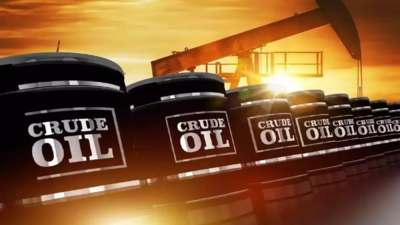NEW DELHI: The meltdown in oil prices allows the government to shore up its finances by raising
excise duty
to partly absorb the windfall gains being made by fuel retailers and give relief to consumers by announcing a moderate reduction in petrol and diesel prices to tame
inflation
,
BofA Securities
, the investment banking division of the US banking giant earlier known as Bank of America, said in its latest report.
“A fall in oil prices, and the subsequent reduction in import costs can be construed as India’s savings going up, as it pays less for its energy requirements. However, the savings may not necessarily be accrued by households or corporates (by way of lower energy bills), and it is the government which can decide whether to pass on the gains, and how much to pass on, through lower prices, creating a trade-off between fiscal revenues and inflation,” the report by Rahul Bajoria said.
In rupee terms, the report estimated crude prices declining just under Rs 9/litre between September (2023) and March 2024. It said oil prices have fallen 20% since the last fuel price revision in April, leading to widening (marketing) margins for fuel retailers the government can tap into.
“The government can look at a gain of almost Rs 110 billion in revenue/profits annually for the additional rupee oil companies make on petroleum products, thus making the gains potentially be close to Rs 1 trillion on an annualised basis, or 0.3% of GDP, if these numbers hold for another year or so,” the report said. This gives the government room to recoup revenue it had foregone by reducing excise duty on petrol and diesel in the last two years to cushion consumers from flaring energy prices.
If the government chooses not to absorb the savings, and pass it on to consumers, it will have an immediate impact on inflation and consumption over a longer period. On inflation, petrol has a weight of 2.19% in the CPI, while diesel, which is mostly used for industrial purposes, has a weight of only 0.15%. “Together, a Rs 5 /litre reduction in retail fuel costs would imply a 5.5% reduction in fuel index, which will generate a 14 bp direct impact, and another 14-15 bp of indirect effect over a period of 2-4 months, bringing the total impact closer to 29 bp,” the report said.
Noting India meets 80% of oil requirement through imports, the report estimated the 20% decline in crude prices would result in savings of almost $13 billion for every $10/barrel decline annually. “This translates into about 0.3% of GDP on the current account, which further boosts external finances, it said and pointed out the “RBI has accrued about $67 billion of additional foreign reserves in 2024 itself”.
Benchmark Brent crude dropped to $70/barrel earlier this month, the lowest since December 2021, and is hovering just below the $75/barrel, down 20% from a peak of $92 in April. The report pointed out that rising volumes of Russian crude at discounts, though narrow at current prices, enhanced the savings on energy imports.


